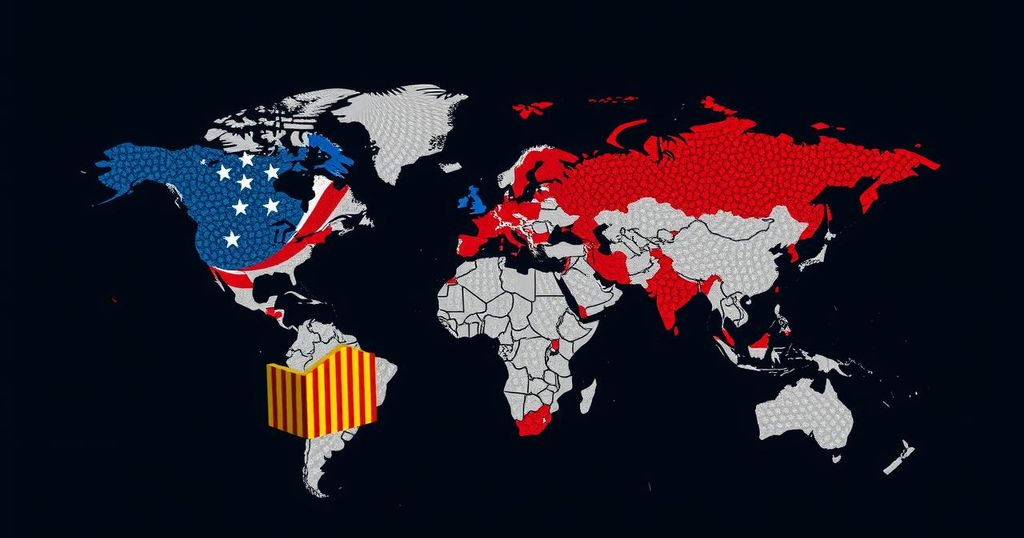The Global Consequences of the U.S. Election

The upcoming U.S. election is crucial for global affairs, with candidates Kamala Harris and Donald Trump presenting contrasting foreign policy approaches amidst pressing international crises, such as the Israel-Gaza conflict and Russia’s invasion of Ukraine. The election outcome will greatly influence future global diplomacy and international relations.
The impending U.S. election holds significant implications not only for American citizens but also for global geopolitics. As voters prepare to cast their ballots, the choice between candidates Kamala Harris and Donald Trump is pivotal, particularly in relation to critical foreign policy issues. Both candidates have starkly different approaches to international matters that will affect millions beyond U.S. borders. The next President will confront several pressing global crises, notably the ongoing conflict between Israel and Gaza, as well as the prolonged ramifications of Russia’s invasion of Ukraine. Each situation demands urgent attention and could be influenced by the policies put forth by the newly elected leader: 1. Foreign Policy Divergence: The contrasting foreign policy philosophies of the candidates raise questions about how they would navigate these crises. Kamala Harris might advocate for a more diplomatic approach, continuing efforts to pursue peace where President Biden has faced challenges. In contrast, Donald Trump’s transactional style may lead to either innovative agreements or exacerbate tensions, depending on how he engages with these situations. 2. Global Response: The ramifications of the U.S. election extend well beyond American elections. Allies and adversaries alike will closely monitor the election results, as they will shape their diplomatic stances and strategies involving the United States moving forward. The manner in which the new commander-in-chief addresses the Middle Eastern conflicts and the situation in Ukraine will reverberate through international relations and security frameworks. In summary, the U.S. election is not merely a domestic affair but a significant event with potential consequences for global stability and cooperation. It is crucial for international stakeholders to remain agile, prepared to adapt their policies based on who will take office come election day. Ultimately, the choice of the next President will determine the global landscape concerning U.S. foreign policy, influencing peace, conflict, and collaboration on critical international issues.
The U.S. election serves as a pivotal moment not only for the nation but for the entire world due to the impact of U.S. foreign policy on global events. The upcoming election follows a period marked by notable crises in international relations, particularly concerning conflict in the Middle East and Eastern Europe. The differing viewpoints on foreign policy from leading candidates highlight the potential shifts in global dynamics based on the election outcome.
In conclusion, the U.S. election is critical for the future of international affairs. The selection of the next President will set the direction for how the United States engages with global issues like the Israel-Gaza conflict and the war in Ukraine. Understanding the implications of these electoral choices is vital for both citizens and leaders worldwide as we navigate an increasingly interconnected world.
Original Source: www.aljazeera.com








